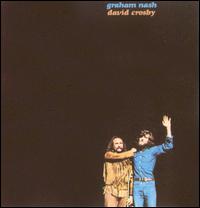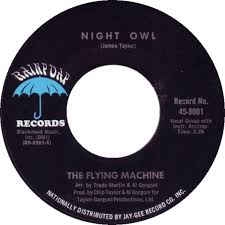
James Vernon Taylor is an American singer-songwriter and guitarist. A six-time Grammy Award winner, he was inducted into the Rock and Roll Hall of Fame in 2000.

Chip Taylor is an American songwriter and singer noted for writing "Angel of the Morning" and "Wild Thing".

"You've Got a Friend" is a 1971 song written by American singer-songwriter Carole King. It was first recorded by King and included on her second studio album, Tapestry (1971). Another well-known version is by James Taylor from his album Mud Slide Slim and the Blue Horizon. His was released as a single in 1971, reaching number one on the Billboard Hot 100 and number four on the UK Singles Chart. The two versions were recorded simultaneously in 1971 with shared musicians.

James Taylor is the debut studio album by American singer-songwriter James Taylor. Released on December 6, 1968, it was the first recording by a non-British artist released by Apple Records, and would also be Taylor's only release on that label. The album was released under the title First Album on the South African market.

Flag is the ninth studio album by American singer-songwriter James Taylor released on May 1, 1979. The album included songs from Taylor's music score to Stephen Schwartz's Broadway musical, Working, based on the book by Studs Terkel.

New Moon Shine is the thirteenth studio album by singer-songwriter James Taylor released in 1991. The album peaked at number 37 on the Billboard 200 chart and certified platinum. The album was producer-pianist Don Grolnick's sixth and final studio album with Taylor prior to his death in 1996 at age 48 from Non-Hodgkin lymphoma.

The Best of James Taylor is the fourth compilation album by American singer-songwriter James Taylor released by Warner Bros. Records in 2003. The same album was released in Europe as You've Got a Friend: The Best of James Taylor.

Lawyers in Love is the seventh album by American singer-songwriter Jackson Browne, released in 1983 by Asylum Records. It was Browne's fourth straight Top 10 album and stayed on the charts for 33 weeks, peaking at No. 8 on the Billboard 200. Out of eight tracks, four were released as singles. The title song reached No. 13 on the Billboard Hot 100 and was accompanied by one of Browne's first music videos released on MTV.

Daniel "Danny Kootch" Kortchmar is an American guitarist, session musician, producer and songwriter. Kortchmar's work with singer-songwriters such as Linda Ronstadt, James Taylor, David Crosby, Carole King, David Cassidy, Graham Nash, Neil Young, Steve Perry, and Carly Simon helped define the signature sound of the singer-songwriter era of the 1970s. Jackson Browne and Don Henley have recorded many songs written or co-written by Kortchmar, and Kortchmar was Henley's songwriting and producing partner in the 1980s.
The King Bees were an American New York-based rhythm and blues musical group of the 1960s.
Attitudes was a rock band from Los Angeles consisting of keyboardist David Foster, guitarist Danny Kortchmar, bassist Paul Stallworth and drummer Jim Keltner. Its band members came together while working as session musicians on George Harrison's album Extra Texture . They then recorded for Harrison's Dark Horse record label. The band's 1976 single "Sweet Summer Music" reached number 94 on the Billboard Hot 100. James Taylor's recording of their single "Honey Don't Leave L.A." peaked at number 61 on the Billboard Hot 100 in 1978.
Clear Light was an American psychedelic rock band that was formed in Los Angeles, California in 1966. The group released one studio album, Clear Light. It had moderate national success before the group disbanded.

Graham Nash David Crosby is the first album by Crosby & Nash, the partnership of David Crosby and Graham Nash, released on Atlantic Records in 1972, catalog SD 7220. It peaked at No. 4 on the Billboard 200 albums chart, and a single taken from the album, "Immigration Man", peaked at No. 36 on the Billboard Hot 100 on June 17 and 24, 1972. It was certified gold by the RIAA, and it was dedicated to Joni Mitchell, as "to Miss Mitchell".

"Steamroller Blues", is a blues parody written by James Taylor, that appeared on his 1970 album Sweet Baby James. It was intended to mock the inauthentic blues bands of the day. The song later appeared on two of Taylor's compilation albums and has been recorded by a variety of other artists.

"Shower the People" is the opening track on James Taylor's 1976 album In the Pocket.

Tenderness Junction is the fourth studio album of The Fugs, formed in 1964 by anti-war musician/poets Ed Sanders, Tuli Kupferberg and Ken Weaver. It was released in the US by record company Reprise. A stand-alone CD was released by Wounded Bird Records in 2011, before which the entire album had appeared on the 2006 3-CD Rhino Handmade box set, Electromagnetic Steamboat.

"Knocking 'Round the Zoo" is a song written by James Taylor that was originally released on his 1968 debut album on Apple Records. He had previously recorded the song in 1966 with his band the Flying Machine, but that recording was not released until 1971 on James Taylor and the Original Flying Machine. It was also released by Apple as a single in France, backed with "Something's Wrong." "Knocking 'Round the Zoo" and "Something in the Way She Moves" were included on the demo tape that Taylor sent producer Peter Asher that convinced him to sign Taylor to Apple.

"Beautiful" is a song written by Carole King that was first released on her 1971 award-winning album Tapestry. It has also been covered by other artists, such as Barbra Streisand and Richard Marx, and included on several of King's live albums. It was also used as the title song of the 2014 Broadway musical Beautiful: The Carole King Musical.

"Night Owl" is a song written by James Taylor that was originally released as a single by Taylor's band the Flying Machine, which also included Danny Kortchmar in 1967. Taylor later rerecorded a solo version of the song for his Apple Records debut album James Taylor in 1968. Subsequently, the Flying Machine version was released on the album James Taylor and the Original Flying Machine. It has also been covered by such artists as Alex Taylor, Carly Simon and Anne Murray.

"Honey Don't Leave L.A." is a song written by Danny Kortchmar. It was first recorded by Attitudes, a band consisting of Kortchmar, Paul Stallworth, Jim Keltner and David Foster, who met while backing George Harrison on his album Extra Texture . It was released on Attitudes' self-titled debut album in 1976. It was also released as a promotional single on Harrison's Dark Horse Records label.

















